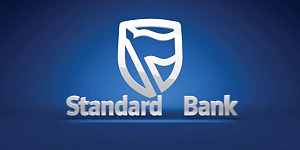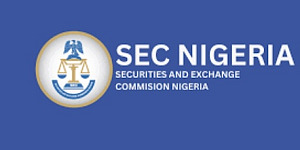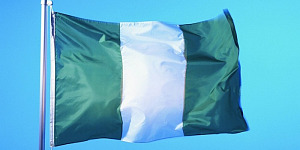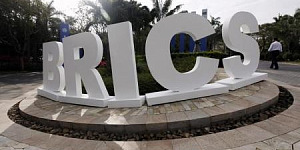Fitch Ratings has affirmed Nigeria's Long-Term Foreign-Currency Issuer Default Rating (LTFC IDR) at 'B' with a Stable Outlook.
A full list of rating actions is detailed below.
Key Rating Drivers
Higher Oil Prices Support Rating: Higher global oil prices will drive an improvement in external liquidity and support near-term economic growth. These improvements are balanced against high hydrocarbon dependence, which leaves Nigeria vulnerable to negative oil price shocks, and structurally low domestic revenue mobilisation. The continuation of fuel subsidies will limit upside from higher oil prices on Nigeria's public finances. Forecasts are based on Fitch's December 2021 oil price assumptions (USD70 per barrel in 2022 and USD60 per barrel in 2023), but Fitch has considered alternate oil price scenarios, including oil prices at current levels. While substantially higher oil prices could lead to a higher outcome of Fitch's Sovereign Rating Model (SRM), we could deem such a change temporary and reflective of Nigeria's high exposure to oil prices, which also entail heightened risks of a renewed downcycle.
Improved External Liquidity: Nigeria's gross international reserves have been bolstered by higher oil export receipts, which will continue in 2022. We forecast reserves to increase to USD43 billion in 2022, up from USD40.5 billion at end-2021. We estimate that the combination of oil exports and remittance inflows helped to bring the current account (CA) into balance in 2021 after a deficit of 4.2% of GDP in 2020. Our baseline assumption is for the CA balance to remain broadly unchanged in 2022, but sustained higher oil prices at their present level of USD112 per barrel could widen the 2022 current account surplus to 4% of GDP, with upside to Nigeria's international reserves.
Fuel Subsidies Weaken Fiscal Balance: In January 2022, the government reversed a plan to phase out the implicit fuel subsidies that support price controls on petroleum. This has necessitated an adjusted federal government budget for 2022 with a deficit target that is 0.6% of GDP wider than the original target, due to the subsidies (with an additional equal hit to the other levels of government). Higher oil prices would also boost the subsidy cost, denting the benefit of higher global oil prices to the budget. We forecast the 2022 general government fiscal deficit to remain broadly unchanged from 4.1% of GDP in 2021. However, we estimate that an USD10 per barrel increase would narrow the fiscal deficit by 0.5% of GDP.
High Debt Servicing Costs: We forecast general government debt, including the Federal Government of Nigeria's (FGN) overdraft with the Central Bank of Nigeria (CBN), to increase to 32% of GDP by end-2022, well below the current 'B' median forecast of 79.1%. Debt affordability metrics related to revenue are helped by an increase in non-oil revenue to an estimated 5.6% of GDP in 2021, from an average of 3.9% in the previous five years. However, debt still stood at 348% of revenue end-2021, above the current 'B' median of 325%. The ratio of FGN debt to FGN government revenue is much higher, at over 755%. If oil prices remain above Fitch's current assumptions, higher nominal GDP and oil revenue will likely lead to some improvement in debt metrics.
GDP Growth Recovers: Real GDP growth recovered in 2021 to 3.4%, after a 1.8% contraction in 2020. Growth was driven by the non-oil sector, particularly agriculture and manufacturing, which were supported by interventions by the CBN. Higher oil receipts will boost foreign-currency liquidity and support a continued recovery in the non-oil sectors, but oil production will remain below capacity. Fitch forecasts GDP growth in 2022 and 2023 to remain just above 3%.
Operational Issues Dampen Oil Production: Fitch forecasts crude oil production, including condensates, to remain at 1.7 million barrels per day in 2022 and to increase to 1.8 million in 2023. The passage of the Petroleum Investment Act in July 2021 provides some upside to hydrocarbon production in the medium term, but we see also risks that global moves to reduce oil sector investment will affect Nigeria, as evident by Shell's announcement of their intended exit from the country. The Dangote refinery, broadly sufficient to fulfil Nigeria's domestic demand for refined products, will come on line in 2H22, reaching full capacity in late 2023. This will provide some support to Nigeria's external position and to economic growth through lower fuel importation and transportation costs.
High Inflation: Fitch forecasts annual average inflation to fall to 14.6% in 2022, from 17% in 2021, given the insulation from global energy prices by fuel subsidies. Inflation will remain well above the 'B' median of 4.6%, driven by food prices, global commodity market disruptions, and by supply constraints due to import restrictions. The CBN has held official policy rates steady since September 2020 in support of the economic recovery. We expect the central bank to continue managing domestic liquidity primarily through the use of the cash reserve ratio; although at least one interest rate increase is likely.
ESG - Governance: Nigeria has an ESG Relevance Score (RS) of '5' for both Political Stability and Rights and for the Rule of Law, Institutional and Regulatory Quality and Control of Corruption. Theses scores reflect the high weight that the World Bank Governance Indicators (WBGI) have in our proprietary SRM. Nigeria has a low WBGI ranking at 16.4, reflecting weak institutional capacity, uneven application of the rule of law and a high level of corruption.
RATING SENSITIVITIES
Factors that could, individually or collectively, lead to negative rating action/downgrade:
-External Finances: Significant intensification of external liquidity pressures, for example, illustrated by a rapid drawdown in reserves or a sustained period of low oil prices.
-Public Finances: Larger fiscal deficits or worsening debt metrics, as could occur through continuing weaknesses in the fiscal policy framework, for example, the fuel price subsidy or the large central bank financing of the sovereign.
Factors that could, individually or collectively, lead to positive rating action/upgrade:
- External Finances: Stronger resilience of external finances from a durable recovery in international reserves or from sustained current account surpluses.
- Public Finances: Credible path to stronger mobilisation of domestic non-oil revenue sufficient to significantly lower the particularly high debt- and interest-to-revenue ratios.
- Macroeconomic Performance: A strengthening of trend economic growth supporting a recovery in GDP per capita and a durable moderation in inflation.
Sovereign Rating Model (SRM) and Qualitative Overlay (QO)
Fitch's proprietary SRM assigns Nigeria a score equivalent to a rating of 'B' on the LTFC IDR scale.
Fitch's sovereign rating committee did not adjust the output from the SRM to arrive at the final LTFC IDR.
Fitch's SRM is the agency's proprietary multiple regression rating model that employs 18 variables based on three-year centred averages, including one year of forecasts, to produce a score equivalent to a LTFC IDR. Fitch's QO is a forward-looking qualitative framework designed to allow for adjustment to the SRM output to assign the final rating, reflecting factors within our criteria that are not fully quantifiable and/or not fully reflected in the SRM.
Best/Worst Case Rating Scenario
International scale credit ratings of Sovereigns, Public Finance and Infrastructure issuers have a best-case rating upgrade scenario (defined as the 99th percentile of rating transitions, measured in a positive direction) of three notches over a three-year rating horizon; and a worst-case rating downgrade scenario (defined as the 99th percentile of rating transitions, measured in a negative direction) of three notches over three years. The complete span of best- and worst-case scenario credit ratings for all rating categories ranges from 'AAA' to 'D'. Best- and worst-case scenario credit ratings are based on historical performance. For more information about the methodology used to determine sector-specific best- and worst-case scenario credit ratings, visit https://www.fitchratings.com/site/re/10111579.
REFERENCES FOR SUBSTANTIALLY MATERIAL SOURCE CITED AS KEY DRIVER OF RATING
The principal sources of information used in the analysis are described in the Applicable Criteria.
Nigeria does not publish consolidated fiscal data on a general government basis, which complicates our assessment of fiscal performance. Fitch is able to produce its own estimates for general government fiscal metrics based on disaggregated data on federal, state and local government revenue, spending and debt published by the Nigerian National Petroleum Corporation (NNPC), the CBN, the Debt Management Office (DMO), the Budget Office of the Federation (BOF) and the National Bureau of Statistics (NBS). Fitch's estimates are broadly consistent with and comparable to the data used for other sovereigns. The data is sufficient for maintaining the rating.
ESG Considerations
Nigeria has an ESG Relevance Score of '5' for Political Stability and Rights as WBGI have the highest weight in Fitch's SRM and are therefore highly relevant to the rating and a key rating driver with a high weight. As Nigeria has a percentile rank below 50 for the respective governance indicator, this has a negative impact on the credit profile.
Nigeria has an ESG Relevance Score of '5' for Rule of Law, Institutional & Regulatory Quality and Control of Corruption as WBGI have the highest weight in Fitch's SRM and are therefore highly relevant to the rating and are a key rating driver with a high weight. As Nigeria has a percentile rank below 50 for the respective governance indicators, this has a negative impact on the credit profile.
Nigeria has an ESG Relevance Score of '4' for Human Rights and Political Freedoms as the Voice and Accountability pillar of the WBGI is relevant to the rating and a rating driver. As Nigeria has a percentile rank below 50 for the respective governance indicator, this has a negative impact on the credit profile.
Nigeria has an ESG Relevance Score of '4' for Creditor Rights as willingness to service and repay debt is relevant to the rating and is a rating driver for Nigeria, as for all sovereigns. As Nigeria has a fairly recent restructuring of public debt in, this has a negative impact on the credit profile.
Except for the matters discussed above, the highest level of ESG credit relevance, if present, is a score of 3. This means ESG issues are credit-neutral or have only a minimal credit impact on the entity, either due to their nature or to the way in which they are being managed by the entity. For more information on Fitch's ESG Relevance Scores, visit www.fitchratings.com/esg.







































